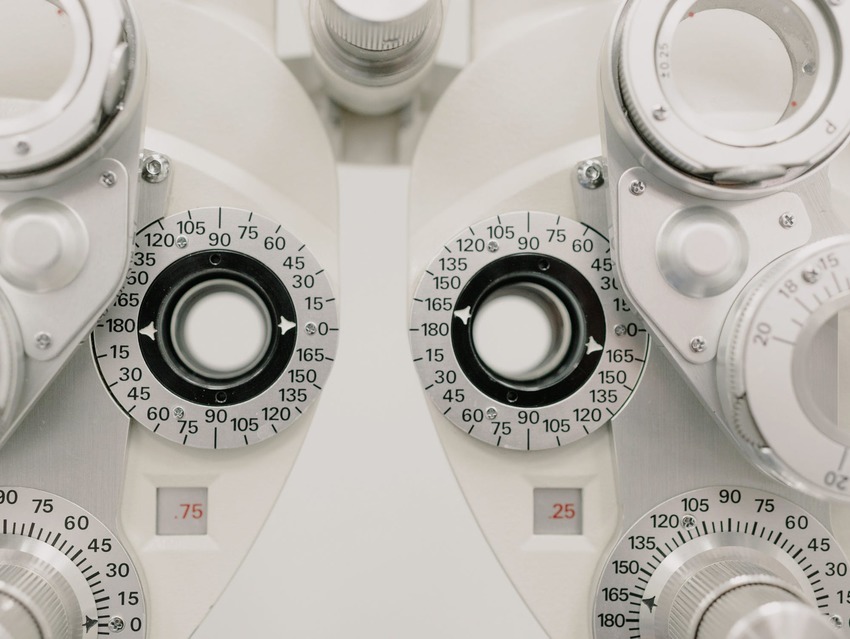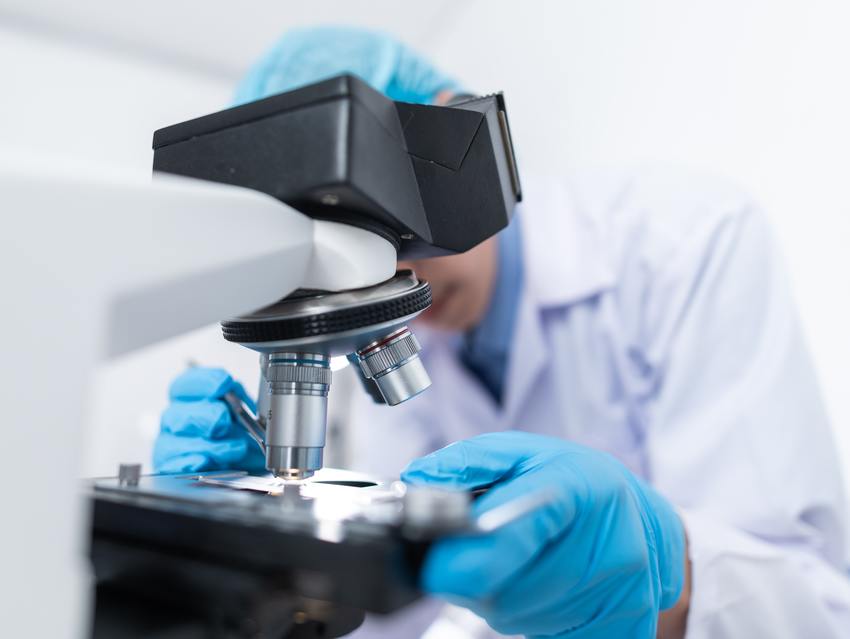As one of the largest life sciences clusters in Europe, Scotland is the home of ground-breaking research and invention in human healthcare and technology.
Employing...
over 41,000 people across 770 organisations.
Contributing...
£2.4bn in GVA to the Scottish economy.
Glasgow’s thriving Life Sciences sector, underpinned by a robust partnership of academia, industry and the NHS, provides ideal conditions for health innovation to flourish.
With four universities, the largest acute hospital complex in Western Europe and a world-leading talent pool, the region produces and attracts international leaders in precision medicine, medical technology, and translational medicine.
Led by the prestigious University of Glasgow, the city is now a world leading and business-friendly centre for precision medicine and imaging, providing unique access to ‘cradle to grave’ electronic patient records and data, easy access to clinical trial infrastructure, partner identification, logistical and financial support.
In dealing with the COVID-19 pandemic, Glasgow City Region has drawn on strengths in research, innovation and entrepreneurship to help tackle new societal challenges and provide a platform to recover and re-build.
The collective response across the city region has been remarkable, with multidisciplinary approaches to collaborate across the public, private and academic sectors to deliver results at pace.
Click here to explore the breadth and depth of regional activity.
More than 380 Life Sciences companies…
in the Glasgow city region turn over £325m annually, employ over 10,000 people and represent over one third of Scotland’s total sector base (incl. 50% of MedTech companies).
Glasgow is one of only 12 major European cities…
to boast a global top 50 university for Life Sciences.
The £1bn Queen Elizabeth University Hospital…
developed in partnership between NHS Greater Glasgow and University of Glasgow, is the largest critical care complex in Western Europe.
Regional strengths
Glasgow, its universities, research institutes and hospitals sit at the heart of the city region, underpinned by a robust and innovative partnership across industry, academia and the public sector and supported by a well-established and complex supply chain.
The Glasgow Lighthouse Lab, operated by the University of Glasgow on behalf of the UK Government, has played a vital role in identifying positive COVID-19 cases and helping reduce transmission of the virus since starting operations in April 2020.
Staffed around the clock, more than 20m PCR tests from across the UK have been analysed at the lab to date, with many tests genomically sequenced to identify and track any new variants.
The region is also home to world-class R&D centres of excellence, including the University of Glasgow-led Imaging Centre of Excellence (ICE), Clinical Innovation Zone, and the Precision Medicine Scotland Innovation Centre (PMS-IC) at the Queen Elizabeth University Hospital (QEUH) site.
The PMS-IC brings together industry innovators, clinicians and world-class researchers to collaborate on Precision Medicine opportunities. It focuses on linking Scotland’s domain expertise, data assets and delivery capability to accelerate the adoption of new products and services for a global market. The Innovation Centre was established by a consortium of partners from 4 Scottish NHS Health Boards, 4 Scottish Universities and 2 industrial partners in informatics: Aridhia Ltd and in genetics with ThermoFisher Scientific Ltd.
The quality of research from the four Precision Medicine Scotland-Innovation Centre partner universities in precision medicine related subjects is higher than in other key university groupings in the UK.
Health innovation in the region is further supported by world-class infrastructure and facilities, including novel imaging technology and access to a patient base of 2.8m.
The £56m Medicines Manufacturing Innovation Centre, in partnership with the University of Strathclyde, will accelerate adoption of novel manufacturing technologies for small molecule pharmaceuticals and fine high value chemicals. The region is also home to one of the largest pathology laboratories in Europe and a large biorepository for high-quality clinical samples.
Previous research by Scottish Enterprise has indicated 30% of all the biosafety testing across Europe is done in Glasgow. SGS Vitrology, the world’s leading inspection, verification, testing and certification company, is a topical example of Glasgow’s distinct strengths. From the onset of the pandemic, SGS has batch developed and tested over 1 billion doses of COVID-19 vaccine for clinical trial.
The biosafety testing market is itself part of the wider “Pharmaceutical Services” sub-sector where the City Region in particular excels, by providing contract research services and the supply of key components of the supply chain.
Cluster strengths
The Glasgow BioCorridor ─ a biomedical cluster linking industry with public sector and academia ─ houses more than 380 life sciences companies, representing over a third of all life sciences enterprises and medtech companies in Scotland. Almost 75% of life sciences activity involves human healthcare and more than 25% of the region’s top innovative technology firms are in the health and medical sectors, higher than in Manchester, Liverpool and Leeds.
Precision medicine is changing the way we think about health problems with a new generation of healthcare delivery which signifies a movement away from a one-size-fits-all approach to medical care, tailoring medical diagnosis and treatment to individual characteristics of patients. Companies can capitalise on Glasgow city region’s strengths in the sector to launch their precision medicine application in the UK, Europe and globally. The global precision medicine market across major diseases is forecast to grow to £102bn by 2025.
Technologies which are transforming healthcare delivery, accelerated by the COVID-19 pandemic, include mobile and app-based technologies, wearable devices, how public health messages are both rapidly and effectively communicated, and the analysis and interpretation of data. In 2024, the total medical technology revenue globally is expected be nearly £450bn. Medical technology is used for diagnosis, monitoring, or treatment of diseases or medical conditions.
Assets and infrastructure
Queen Elizabeth University Hospital Campus
The Queen Elizabeth University Hospital Campus is the largest critical care complex in Western Europe, puts Glasgow at the forefront of healthcare and innovation across the UK and Europe.
The 14 floor building is one of the largest acute hospitals in the UK and home to major specialist services such as renal medicine, transplantation and vascular surgery, with state-of-the-art Critical Care, Theatre and Diagnostic Services.
Precision Medicine Scotland Innovation Centre
The Precision Medicine Scotland Innovation Centre enables the development of new products and services for a global market via its platform for collaboration linking Scotland’s expertise, data assets and delivery infrastructure to accelerate the real-world adoption of precision medicine including incubator units for industry.
The Living Laboratory
The Living Laboratory for Precision Medicine, with funding from UKRI Strength in Places Fund, is an internationally leading programme focused on translating cutting-edge science and healthcare innovation into real-world clinical settings. Integrated within the Queen Elizabeth University Hospital campus, the Living Laboratory expands upon Glasgow’s award-winning precision medicine industry cluster to realise the full potential and benefit of precision medicine.
The Living Laboratory will be a focal point for research and development, open innovation and commercialisation – bringing partners from across the triple helix together to unlock substantial productivity growth opportunities. Delivering expert support for industry, access to a supportive ecosystem and unique infrastructure, the Living Laboratory enables the testing of new innovations in clinical settings, accelerating the adoption of precision medicine innovations into healthcare to deliver savings for the NHS, improve health outcomes and drive economic development in Govan, Glasgow, and beyond.
Imaging Centre of Excellence (ICE)
The Imaging Centre of Excellence (ICE) houses the UK’s first ultra-high field 7 Tesla (7T) MRI scanner, fully integrated within a clinical site. ICE also links to world leading 3T and CT imaging clinical research facilities, transforming Glasgow’s capacity to deliver leadership internationally in imaging and precision medicine.
Glasgow Clinical Research Facility
The Glasgow Clinical Research Facility is led by the University of Glasgow and NHS Greater Glasgow and Clyde for trials in adults and children. Employing over 60 staff, the CRF works closely with NHS researchers, academic partners, contract research organisations, pharmaceutical and medical device companies.
The University of Glasgow Clinical Innovation Zone
The University of Glasgow Clinical Innovation Zone is based at the Queen Elizabeth University Hospital and a designated member of the United Kingdom Science Park Association, comprising of 22,000 ft2 of space designed to foster open innovation across the collaborative ‘triple-helix’ partnership, between the University, industry and NHS. Co-located industry partners within the CIZ include Aridhia, Clinnovate Health, Siemens Healthineers, MR CoilTech, Causeway Therapeutics, BioClavis, Canon Medical Systems and Spiritus.
Queen Elizabeth University Hospital Learning and Teaching Centre
The Queen Elizabeth University Hospital Learning and Teaching Centre is a purpose-built facility developed and managed in partnership between the University of Glasgow and NHS Greater Glasgow and Clyde on the Queen Elizabeth University Hospital campus.
The University of Strathclyde: Institute of Medical Devices
The University of Strathclyde is exemplary in medicines, medical devices and diagnostics. The Strathclyde Institute of Medical Devices brings together specialists in engineering, life sciences, physical sciences and the NHS to research and innovate future technologies and assist MedTech companies and their supply chain to enter the global MedTech market.
Digital Health & Care Innovation Centre
Led by a world-leading partnership between the Glasgow School of Art and the University of Strathclyde, the Digital Health & Care Innovation Centre supports transformational collaboration between universities and businesses. The innovation centre can help you to develop prototypes and take them to market, as well as offering a demonstration and simulation environment alongside living lab test beds.
CENSIS
CENSIS is Scotland's Innovation Centre for sensing, imaging and Internet of Things (IoT) technologies. CENSIS work with all types of organisations, from large multinationals and public sector bodies, to SMEs, including high tech, pre-revenue start-ups. They also support collaborative R&D projects and industrial PhDs to both develop the skills base and generate new technologies.
Health and Care Futures
Health and Care Futures uses state-of-the-art innovation and expertise to promote the delivery of new models of care focusing on prevention, and empowering individuals and populations to live as well as possible at home and in their communities.
Scotland has a well-established ecosystem for precision medicine centred around the Scottish Government’s investment in the Precision Medicine Scotland Innovation Centre and the QEUH. The combination of world-class clinical research, electronic health data, patient samples, NHS and large cohorts of patients with chronic disease differentiates Scotland from many other countries.
— Professor Victor Dzau, President of US National Academy of Medicine.
We are pleased to contribute to Scotland’s health and economic growth, now and beyond the pandemic.
— LumiraDx Chief Executive Ron Zwanziger
View full success storyScottish Enterprise has worked closely with the company in Scotland, Europe, US and Japan to provide business support. This has included work from SDI field colleagues in Japan and across Europe to help identify potential customers, as well as tailored company support on the ground in Scotland to look at new market opportunities globally and extend existing testing services.
— Dr David Bunton, CEO of ReproCELL Europe Ltd
View success storyNetworks
Technology and Innovation Centre (TIC)
The University of Strathclyde’s TIC is home to 850 academics working in partnership with industry tenants focusing on key themes including health technologies and disease management.
Kadans - West of Scotland Science Park
Kadans is home to a wide range of companies operating across all areas of the life sciences and technology sectors including ultrasonics, pharmaceuticals, mobile computing, cleanrooms, satellites, laser systems, telecommunications, pre-clinical drug discovery and optolectronics. In close proximity to several leading research facilities including the Beatson Oncology Centre, one of Europe’s top cancer hospitals, and the new Translational Research Centre, the final element in the Glasgow Centre for Cancer Research.
Biocity Glasgow
Biocity Glasgow is a 20-biotech incubator with specialist industry facilities including a compound management library and GMP storage and archiving. Home to a growing number of dynamic, successful and growing technologies.
Medicity Glasgow
Medicity Glasgow is a subsidiary of the BioCity Group offers the ideal environment for both start-up and established MedTech and digital health companies to grow. It provides flexible lab and office space, accelerator bootcamps and events.
Glasgow Riverside Innovation District
Glasgow Riverside Innovation District (GRID) is a partnership between the University of Glasgow, Scottish Enterprise and Glasgow City Council. Its aim is to areate an environment to boost collaborations with industry and encourage the formation of new ones in some of the most dynamic sectors of the economy.
The Living Laboratory and Clyde Waterfront Innovation Campus (CWIC) are both part of GRID. CWIC brings together academic research strengths and unique translational asset with cutting-edge facilities and industrial R&D teams to create an ecosystem offering opportunities for interdisciplinary collaboration, innovation and skills development.
Industry support
The Life Sciences Scotland Industry Leadership Group (LSS ILG) is a joint industry, enterprise of agencies and government strategy teams. Their remit is to develop, drive and deliver the Life Sciences strategy in Scotland.
The Life Sciences Scotland Company Directory lists over 1000 companies and organisations in the life and chemical sciences sector in Scotland. It doesn't only include companies but also academic organisations, research centres and trade associations.
SULSA is a strategic partnership between eleven Scottish Universities that aims to advance Scotland’s research and innovation in the life sciences, and secure Scotland’s global position as a world-class centre of research excellence.
Ecosystem
Glasgow city region’s well-established precision medicine ecosystem can support your business with:
- Extensive data records and real time patient data
- Internationally renowned clinical trial infrastructure
- Connectivity and coordination across academia, industry and healthcare
Company Focus
Precision Medicine
- Bioclavis
- Reprocell
- ScreenIn3D
- Gabriel Precision Oncology Laboratory
- Thermo Fisher Scientific
- Siemens Healthineers
Medical Devices and Diagnostics
Digital Health
Pharmaceutical Services
- SGS Vitrology
- Tissue Solutions
- Amphista Therapeutics
- TC Biopharm
- Mironid
- Causeway Therapeutics
- Sartorius
- Antibody Analytics
Clinical Manufacturing
Both Universities of Strathclyde and Glasgow…
ranked in the top 16 institutions for producing spin-out companies in 2021 with 38 and 29 respectively.
Research & Development
Drive your research forward through collaboration with the region’s leading global universities.
Every Scottish university was found to undertake research deemed “world-leading” in the latest UK benchmarking exercise. Scottish universities also have the highest number of publications per researcher across all UK nations and EU nations of similar size – 0.53 in Scotland vs 0.43 in Sweden and 0.38 in UK, and the highest average number of citations per researcher in these countries.
Scottish Universities were awarded 13% (£450m)…
of all UK funding through Biotechnology and Biological Sciences Research Council and Medical Research Council over the last 5 years.
Scottish universities also generated…
the second highest income in collaborative research with industry in 2018/19 across all UK regions.
Funds
In Glasgow, there are many types of investment, funding, and grant options open to companies in the life sciences sector. Scottish Enterprise, Scotland’s national development agency, can provide access to its Growth Investment Team who invest in and support early-stage companies access a range of finance including bank funding, equity funding, loans and grants.
Scottish Co-Investment Fund
Gap equity funding of between £10,000 and £1.5m matched by an accredited investment partner.
Scottish Venture Fund
Gap funding up to 50% of total funding package between £10,000 and £2m.
Scottish National Investment Bank
A mission-led development bank providing patient capital to build a stronger, fairer, more sustainable Scotland. It invests in debt and equity on commercial terms based on project or business needs.
Venture Capital Fund
A £102m fund, led by Epidarex Capital, for early stage, high growth, life science and health technology companies. The UK Government has committed £50m through the British Business Bank, with the rest coming from the Universities of Edinburgh, Manchester, Glasgow and Aberdeen, Strathclyde Pension Fund and several global investors.
Talent Pipeline
Glasgow’s leading institutions are developing a pipeline of talent for your business now and in the future.
Wth access to the very best talent pool, the city is home to over 8,000 health and life sciences students - the highest of all 11 UK core cities - and feeds an established industry workforce in excess of 10,000 people.
The city region graduate pool in particular is strengthened by precision medicine-specific courses and world-class research centres.
The University of Glasgow houses Scotland’s imaging and precision medicine centres of excellence (ICE and PMS-IC), iCAIRD and the £98m precision medicine Living Lab. The university also awards a postgraduate Masters course in Precision Medicine and Pharmacological Innovation, and the MRC Doctoral Training Programme in Precision Medicine.
The University of Strathclyde is exemplary in medicines, medical devices and diagnostics, partnered with the £56m Medicines Manufacturing Innovation Centre in Renfrewshire. The University also houses the Digital Health and Care Institute (DHI).
Sector News
Read all the latest Life Science news in and around Scotland:




